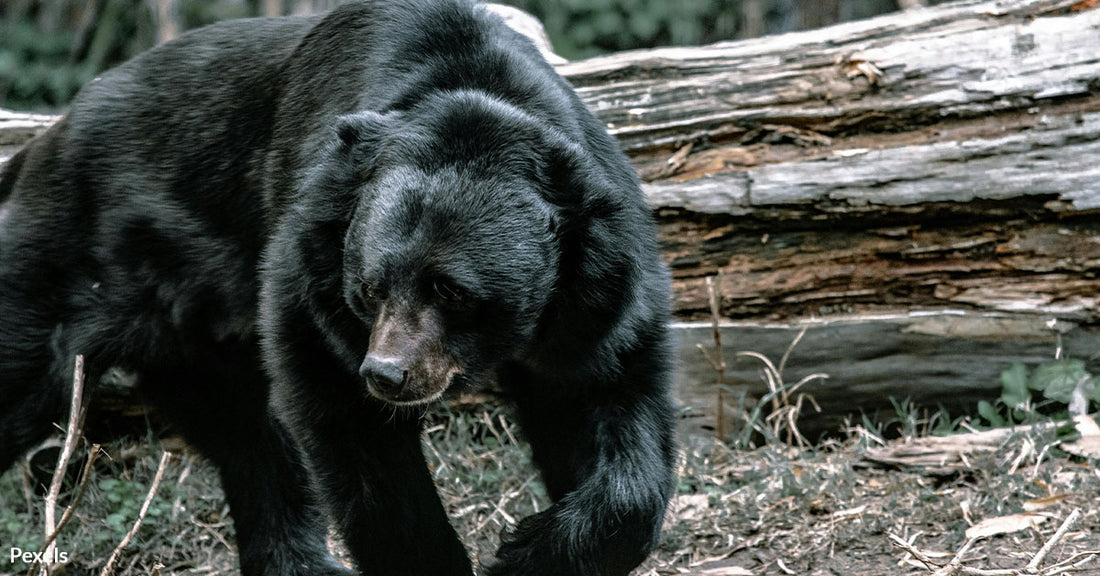Legal Fights Intensify to Protect Louisiana Black Bears Amid Habitat Loss
Matthew Russell
The Louisiana black bear, once a symbol of resilience, faces new threats as efforts to save this species intensify.
Once teetering on the brink of extinction, this bear has seen its habitat and protection fluctuate over the years, leading to a complex battle between conservationists and those pushing for regulated hunting.

Historical Background
The Louisiana black bear, a unique subspecies of the American black bear, historically roamed across Louisiana, Texas, Mississippi, and Arkansas. By the mid-20th century, habitat destruction and hunting reduced their numbers drastically.
The bear was listed as threatened under the Endangered Species Act (ESA) in 1992, which helped its numbers to stabilize somewhat over the years. However, in 2016, the U.S. Fish and Wildlife Service (USFWS) controversially delisted the bear, citing recovery success despite ongoing threats and a lack of solid evidence supporting the claim of recovery, The Center for Biological Diversity reports.
Legal Battles and Conservation Efforts
Following the delisting, multiple conservation groups, including Atchafalaya Basinkeeper (ABK), filed lawsuits challenging the USFWS's decision. These lawsuits argue that the bear's population and habitat have not recovered sufficiently to justify removing federal protections. The plaintiffs assert that the delisting was premature and violated federal law by ignoring scientific data on habitat connectivity and long-term survival, according to Atchafalaya Basinkeeper.
The Louisiana Department of Wildlife and Fisheries (LDWF) proposed opening a hunting season for the Louisiana black bear in December 2024, further complicating the issue. Conservationists argue that this move is not backed by adequate scientific data and could jeopardize the fragile bear population. They highlight the lack of recent and reliable monitoring data, as the last comprehensive study was conducted in 2021, Outdoor Life reports.

Arguments for and Against the Hunt
Proponents of the hunt, including state wildlife officials, argue that the bear population has recovered sufficiently to sustain a controlled hunt. They estimate the current population to be around 1,200 bears, primarily in the northeastern corner of the state, US News reports.
They also claim that regulated hunting can help manage the population and reduce human-bear conflicts, which have reportedly increased in recent years, according to Outdoor Life.
On the other hand, opponents argue that the population estimates are outdated and overly optimistic. They point out that the bear's habitat remains fragmented, and illegal poaching continues to pose a significant threat.
Conservationists also emphasize the importance of female bears for population stability, arguing that even a small number of legally hunted bears could have a devastating impact on the species' long-term survival, according to Atchafalaya Basinkeeper.

Conservation Strategies
Efforts to protect the Louisiana black bear focus on habitat restoration and public education. The Louisiana BearWise program aims to reduce human-bear conflicts by promoting practices that prevent bears from accessing human food sources. These measures include securing garbage, removing bird feeders, and installing bear-proof containers, US News reports.
Despite these efforts, more work is needed to ensure the bear's survival. Conservationists advocate for the creation of protected corridors to connect fragmented habitats, allowing bears to move freely and safely between areas. They also call for updated and comprehensive population studies to inform future management decisions, Atchafalaya Basinkeeper reports.

Public Involvement and Future Outlook
The future of the Louisiana black bear hangs in the balance. While the proposed hunting season looms, conservationists continue to push for stronger protections and more robust scientific data.
The outcome of ongoing legal battles will play a crucial role in determining whether this iconic subspecies will thrive or once again face the threat of extinction.
Click below to take action for the Louisiana Black Bear!

